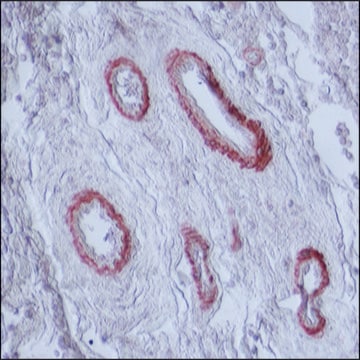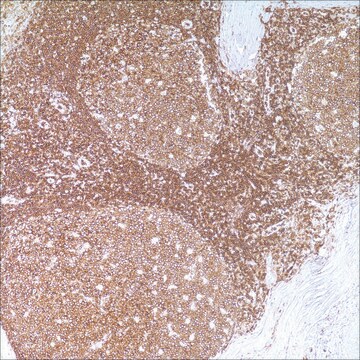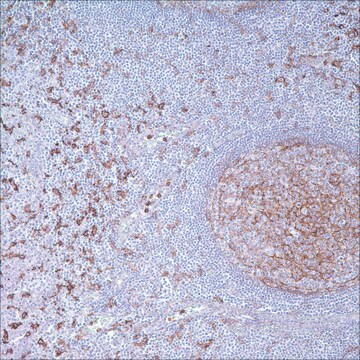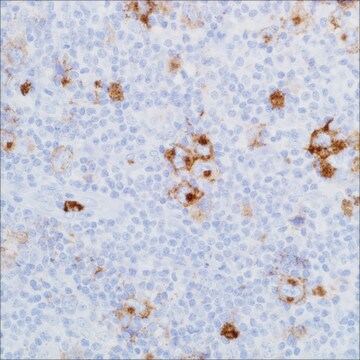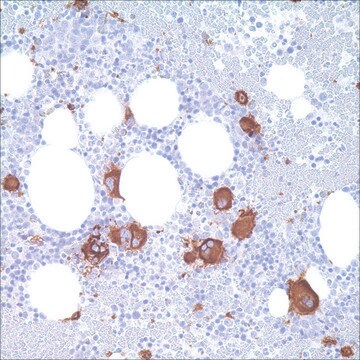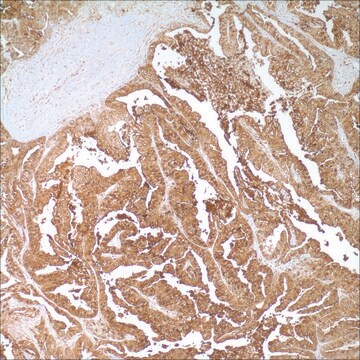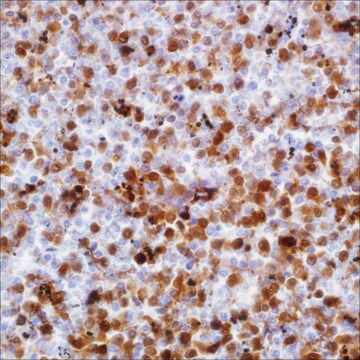453M-9
p53 (DO7) Mouse Monoclonal Antibody
About This Item
Productos recomendados
origen biológico
mouse
Nivel de calidad
100
500
conjugado
unconjugated
forma del anticuerpo
culture supernatant
tipo de anticuerpo
primary antibodies
clon
DO7, monoclonal
descripción
For In Vitro Diagnostic Use in Select Regions (See Chart)
formulario
buffered aqueous solution
reactividad de especies
human
envase
vial of 0.1 mL concentrate (453M-94)
vial of 0.5 mL concentrate (453M-95)
bottle of 1.0 mL predilute (453M-97)
vial of 1.0 mL concentrate (453M-96)
bottle of 7.0 mL predilute (453M-98)
fabricante / nombre comercial
Cell Marque™
técnicas
immunohistochemistry (formalin-fixed, paraffin-embedded sections): 1:100-1:500
isotipo
IgG2bκ
control
colon carcinoma
Condiciones de envío
wet ice
temp. de almacenamiento
2-8°C
visualización
nuclear
Información sobre el gen
human ... TP53(7157)
Descripción general
Calidad
 IVD |  IVD |  IVD |  RUO |
Ligadura / enlace
Forma física
Nota de preparación
Otras notas
Información legal
¿No encuentra el producto adecuado?
Pruebe nuestro Herramienta de selección de productos.
Certificados de análisis (COA)
Busque Certificados de análisis (COA) introduciendo el número de lote del producto. Los números de lote se encuentran en la etiqueta del producto después de las palabras «Lot» o «Batch»
¿Ya tiene este producto?
Encuentre la documentación para los productos que ha comprado recientemente en la Biblioteca de documentos.
Nuestro equipo de científicos tiene experiencia en todas las áreas de investigación: Ciencias de la vida, Ciencia de los materiales, Síntesis química, Cromatografía, Analítica y muchas otras.
Póngase en contacto con el Servicio técnico
